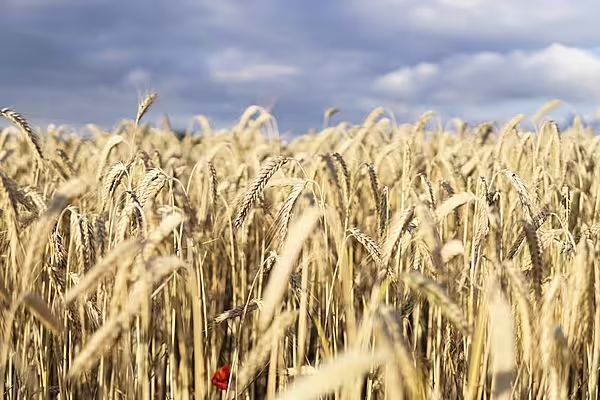Shoprite Holdings Ltd has been forced to source cooking oil, wheat and maize products from alternative countries as the war in Ukraine disrupts Black Sea supplies, the CEO of South Africa's largest grocery retailer said.
With Ukrainian ports closed and operators reluctant to trade Russian wheat in the face of Western financial sanctions, buyers are seeking alternatives, triggering a wave of demand for European Union and US wheat, according to traders.
CEO Pieter Engelbrecht said the retailer had to cancel 34 containers mostly carrying edible oil, maize and wheat products that were going to sail through the Black sea, with 11 of them coming directly from the Ukraine.
"We've been able to source it from a different source but we must not underestimate what the long term impact of this (disruption) is going to be because Ukraine is the second biggest exporter in all three of those commodities," Engelbrecht told Reuters.
Read More: South Africa's Shoprite Sees 9% Growth In Quarterly Sales
Russia and Ukraine account for about 29% of global wheat exports, 19% of corn exports and 80% of sunflower oil.
Shoprite is also augmenting alternative imports with local sourcing, but "I really don't know what we're going to do in the second part of the year," Engelbrecht said.
He said that those imported products represent a small percentage of the group's overall business.
Food shortages in South Africa are unlikely, with impact seen mostly on food prices, Engelbrecht said.
Half-Year Performance
Shoprite, which reported a 25.5% rise in half-year headline earnings per share, said it expects selling price inflation to move higher during the second half of its financial year, which began in January, due to mounting inflation pressures.
Consumer goods companies worldwide are battling a surge in costs of commodities, energy, transport and labour. Russia's invasion of Ukraine is compounding inflation pressures.
In South Africa, food producers Tiger Brands and RCL Foods, which service all grocers in the country, have recently announced plans to take additional price increases to the market.
In the six months ended 2 January, Shoprite's South Africa supermarkets business had selling price inflation of 2.6%, with January price increases of 2.5%
News by Reuters, edited by ESM – your source for the latest Retail news. Click subscribe to sign up to ESM: European Supermarket Magazine.














